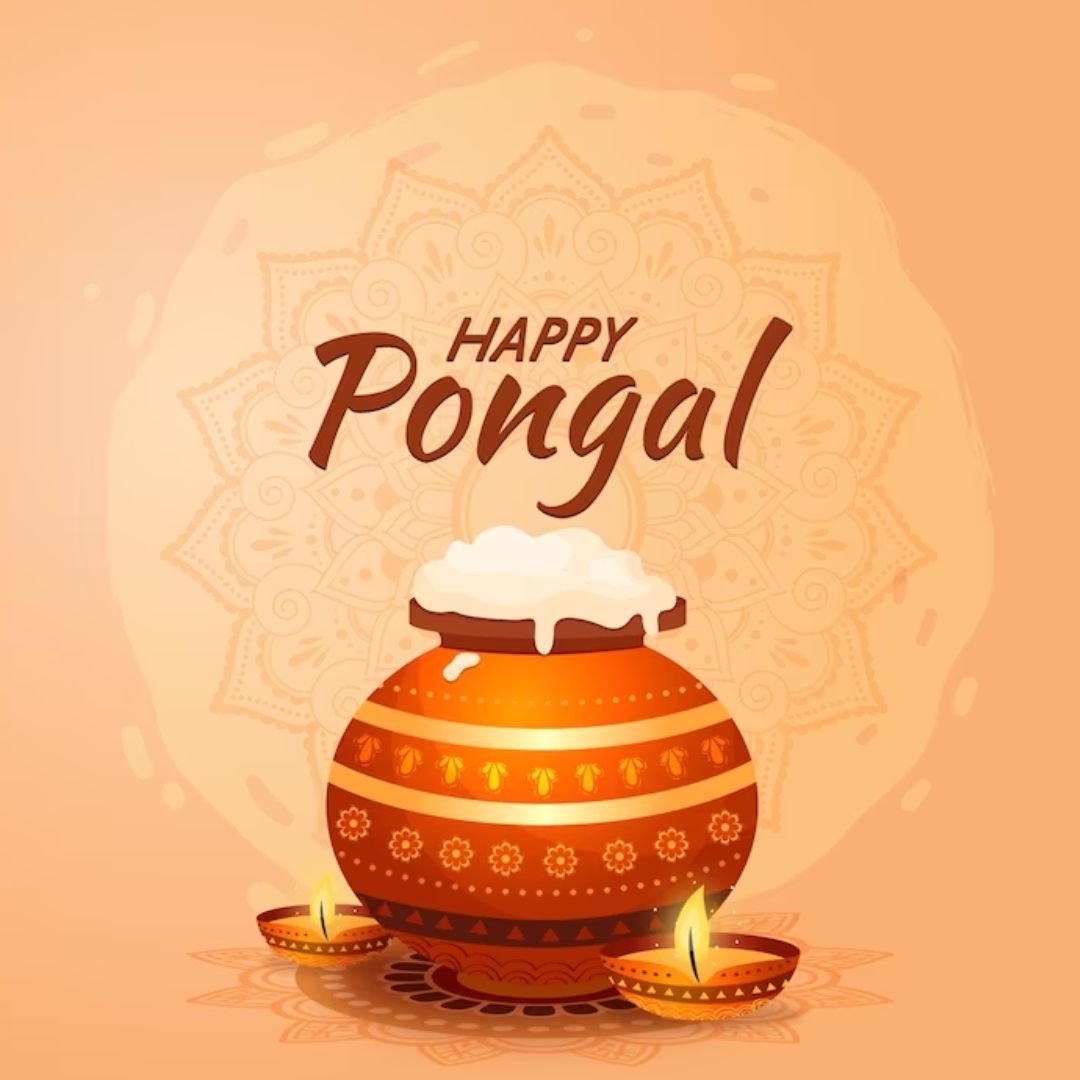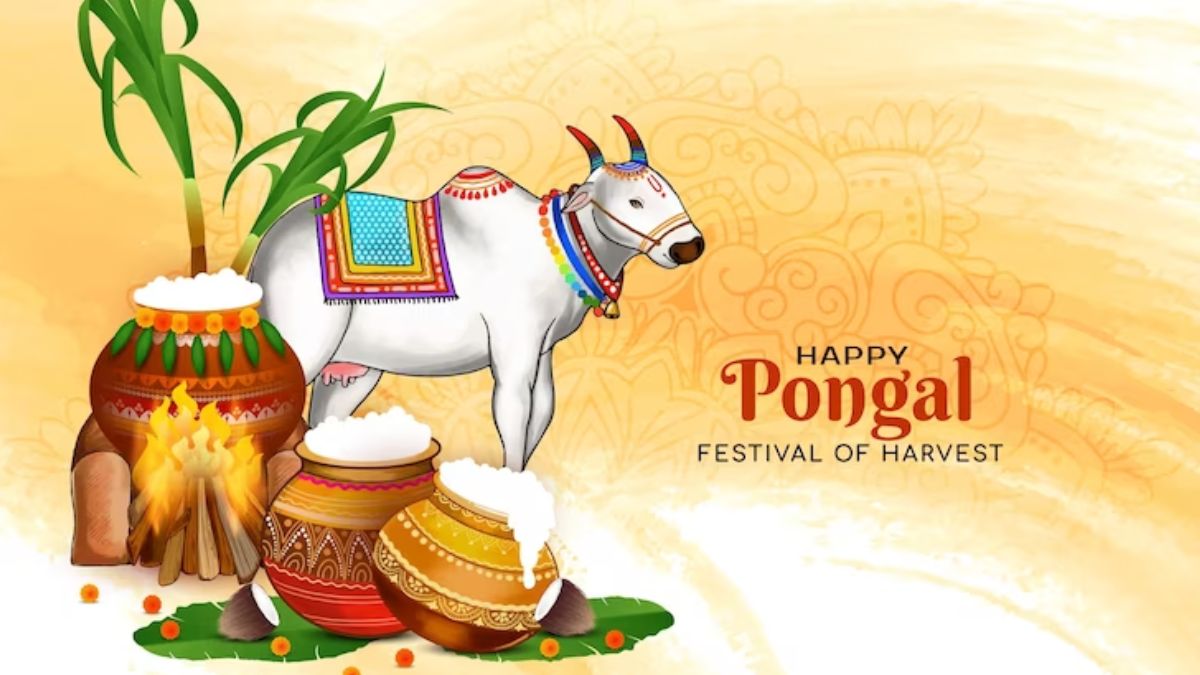- By Kashish Rai
- Sun, 14 Jan 2024 03:38 PM (IST)
- Source:JND
Pongal 2024 Day 1: The first day of the four-day Pongal festival, known as Bhogi Pongal, is observed throughout South India, especially in the state of Tamil Nadu. On this day, the Tamil month of Marghali comes to an end and the Tamil month of Thai begins. People clean their homes, get rid of unwanted items, and enjoy their new purchases on this day. To burn the mountains of outdated, useless items, they build a bonfire in front of their houses. This year, Bhogi Pongal will be observed on 15th January 2024.
Pongal 2024 Day 1: Date And Time Of Bhogi
Bhogi is celebrated one day ahead of the major Makara Sankranti day. It is the first of four days of Sankranti festivities. The Bhogi Sankranti Moment will take place at 02:54 AM on January 15.

Pongal is a significant harvest festival celebrated in Southern India. (Image Source: Freepik)
Pongal 2024 Day 1: Significance Of Bhogi Festival
People discard outdated and abandoned goods that are no longer in use on Bhogi Day. Before the sun rises, people light a bonfire, known locally as Bhogi Mantalu, using wood and other solid fuels. As part of the Bhogi rite, undesirable and old wooden objects, clothing, mats, and furniture are all burned. The burning of the bonfire represents the passing of the old and the arrival of the new. People congregate by the fire to sing and dance while taking in the fire's warmth. To welcome prosperity and good fortune, houses are cleaned, painted, and adorned with vivid rangolis, mango leaves, and flowers.
ALSO READ: Pongal 2024: Date, Time, Significance And Everything You Need To Know About This Tamil Festival
Pongal 2024 Day 1: Rituals Associated With Bhogi Festival
Special delicacies are made and shared with family and friends on Bhogi Pongal. The traditional Pongal dish is made with freshly harvested rice, moong dal (split green gram), jaggery, and milk and is cooked in a clay pot before being consumed as part of the celebration. Bhogi is celebrated by families and friends. Cows and bulls are decked with colourful garlands and tilak in numerous rural areas of South India as a gesture of gratitude and admiration for their aid to agriculture.
(Disclaimer: This is based on general public information. Jagran English does not confirm its veracity. Before adopting any measures, consult an expert from the relevant field.)

